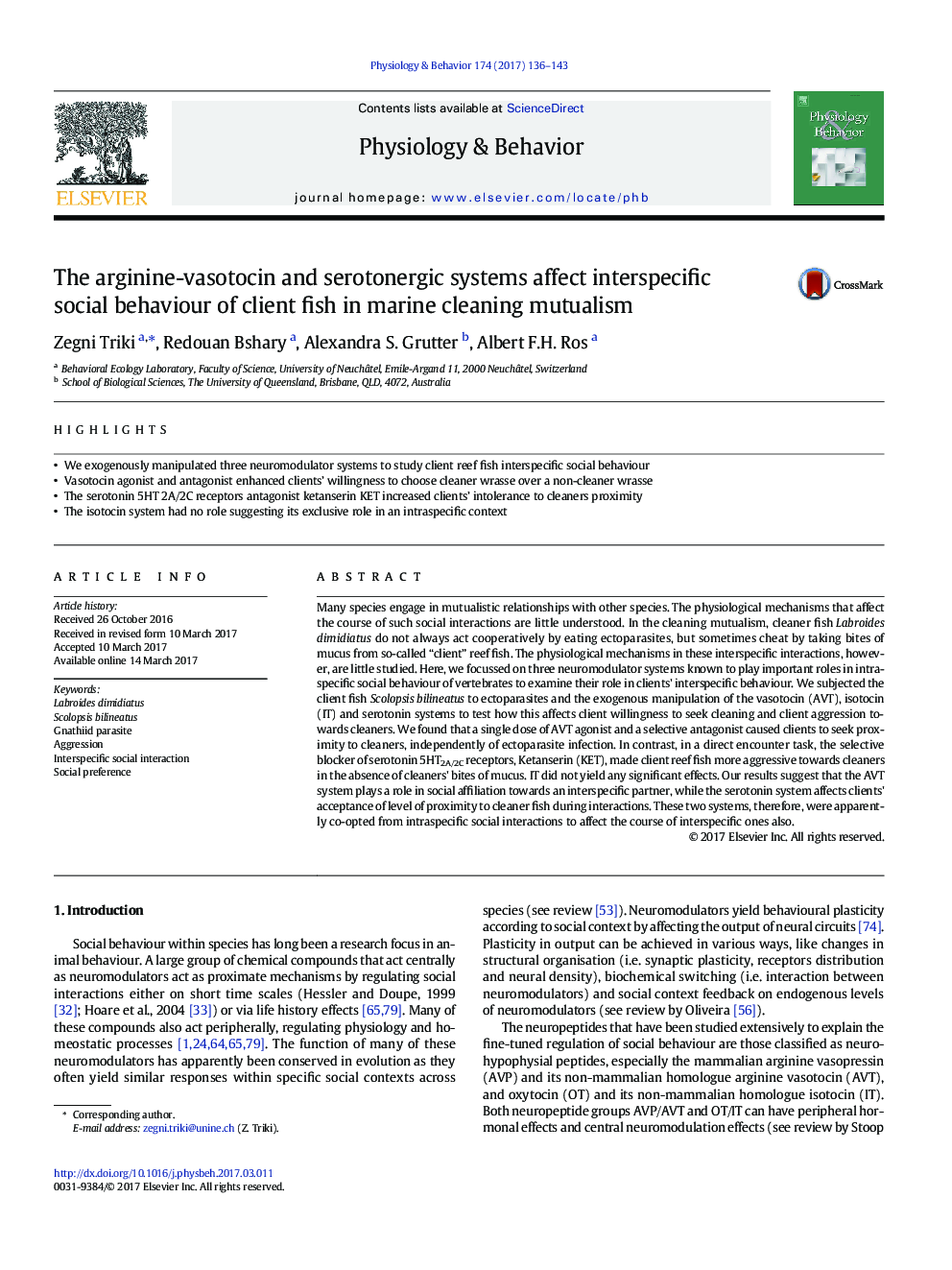| Article ID | Journal | Published Year | Pages | File Type |
|---|---|---|---|---|
| 5593707 | Physiology & Behavior | 2017 | 8 Pages |
Abstract
Many species engage in mutualistic relationships with other species. The physiological mechanisms that affect the course of such social interactions are little understood. In the cleaning mutualism, cleaner fish Labroides dimidiatus do not always act cooperatively by eating ectoparasites, but sometimes cheat by taking bites of mucus from so-called “client” reef fish. The physiological mechanisms in these interspecific interactions, however, are little studied. Here, we focussed on three neuromodulator systems known to play important roles in intraspecific social behaviour of vertebrates to examine their role in clients' interspecific behaviour. We subjected the client fish Scolopsis bilineatus to ectoparasites and the exogenous manipulation of the vasotocin (AVT), isotocin (IT) and serotonin systems to test how this affects client willingness to seek cleaning and client aggression towards cleaners. We found that a single dose of AVT agonist and a selective antagonist caused clients to seek proximity to cleaners, independently of ectoparasite infection. In contrast, in a direct encounter task, the selective blocker of serotonin 5HT2A/2C receptors, Ketanserin (KET), made client reef fish more aggressive towards cleaners in the absence of cleaners' bites of mucus. IT did not yield any significant effects. Our results suggest that the AVT system plays a role in social affiliation towards an interspecific partner, while the serotonin system affects clients' acceptance of level of proximity to cleaner fish during interactions. These two systems, therefore, were apparently co-opted from intraspecific social interactions to affect the course of interspecific ones also.
Related Topics
Life Sciences
Biochemistry, Genetics and Molecular Biology
Physiology
Authors
Zegni Triki, Redouan Bshary, Alexandra S. Grutter, Albert F.H. Ros,
